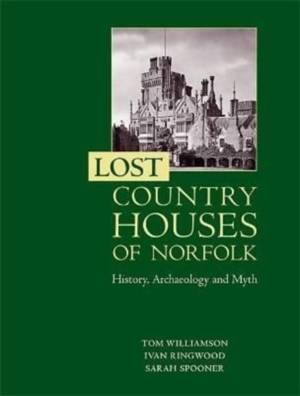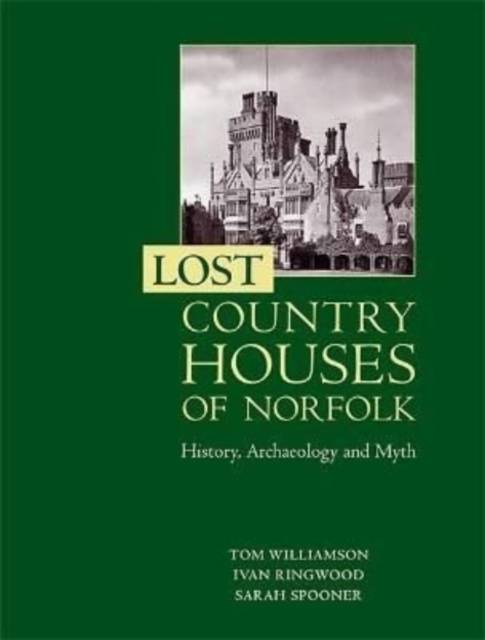
- Afhalen na 1 uur in een winkel met voorraad
- Gratis thuislevering in België vanaf € 30
- Ruim aanbod met 7 miljoen producten
- Afhalen na 1 uur in een winkel met voorraad
- Gratis thuislevering in België vanaf € 30
- Ruim aanbod met 7 miljoen producten
Zoeken
Lost Country Houses of Norfolk
History, Archaeology and Myth
Tom Williamson, Ivan D Ringwood, Sarah Spooner
Paperback | Engels
€ 48,95
+ 97 punten
Uitvoering
Omschrijving
Winner of the general non-fiction category in the East Anglian Book Awards 2016.
The country houses lost from the landscape since the late nineteenth century exercise a peculiar grip on the English imagination, seeming to symbolise the passing of a world of taste and elegance, of stability and deference: a world destroyed by modernity. This important new book argues that most previous studies of the subject have been characterised by nostalgia and vagueness, and by a tendency to exaggerate the scale of the destruction and simplify its causes. It presents a balanced, systematic analysis of country house losses in Norfolk, discussing the scale and chronology of destruction. The authors argue that the loss of great houses was not an entirely new development of the twentieth century, they explain the varied reasons why houses were abandoned and destroyed, and they explore the archaeological traces which these places, their gardens and parks, have left in the modern landscape. Their arguments are illuminated by a full and lavishly-illustrated gazetteer.
This book, the results of many years of fieldwork and documentary research, will be essential reading for all those interested in the history of the country house, in the development of the post-medieval landscape, and in the archaeology and history of the county of Norfolk.
Tom Williamson is Professor of Landscape History at the University of East Anglia; Ivan Ringwood is an independent historical researcher; Sarah Spooner is Lecturer in Landscape History at the University of East Anglia.
The country houses lost from the landscape since the late nineteenth century exercise a peculiar grip on the English imagination, seeming to symbolise the passing of a world of taste and elegance, of stability and deference: a world destroyed by modernity. This important new book argues that most previous studies of the subject have been characterised by nostalgia and vagueness, and by a tendency to exaggerate the scale of the destruction and simplify its causes. It presents a balanced, systematic analysis of country house losses in Norfolk, discussing the scale and chronology of destruction. The authors argue that the loss of great houses was not an entirely new development of the twentieth century, they explain the varied reasons why houses were abandoned and destroyed, and they explore the archaeological traces which these places, their gardens and parks, have left in the modern landscape. Their arguments are illuminated by a full and lavishly-illustrated gazetteer.
This book, the results of many years of fieldwork and documentary research, will be essential reading for all those interested in the history of the country house, in the development of the post-medieval landscape, and in the archaeology and history of the county of Norfolk.
Tom Williamson is Professor of Landscape History at the University of East Anglia; Ivan Ringwood is an independent historical researcher; Sarah Spooner is Lecturer in Landscape History at the University of East Anglia.
Specificaties
Betrokkenen
- Auteur(s):
- Uitgeverij:
Inhoud
- Aantal bladzijden:
- 372
- Taal:
- Engels
Eigenschappen
- Productcode (EAN):
- 9781783276998
- Verschijningsdatum:
- 14/06/2022
- Uitvoering:
- Paperback
- Formaat:
- Trade paperback (VS)
- Afmetingen:
- 170 mm x 244 mm
- Gewicht:
- 585 g

Alleen bij Standaard Boekhandel
+ 97 punten op je klantenkaart van Standaard Boekhandel
Beoordelingen
We publiceren alleen reviews die voldoen aan de voorwaarden voor reviews. Bekijk onze voorwaarden voor reviews.








